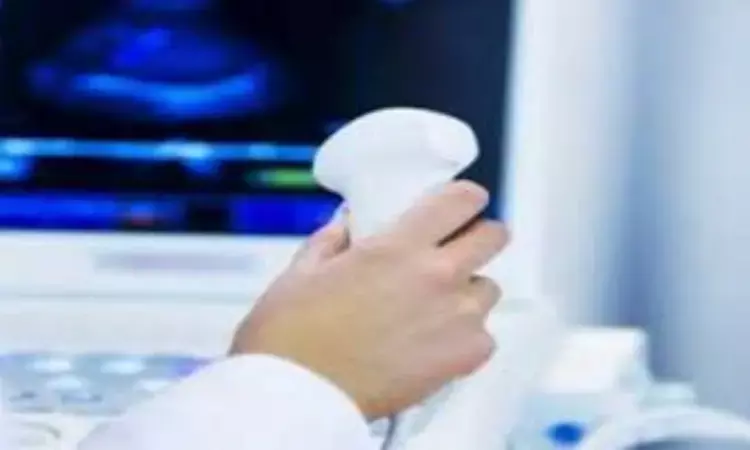- Home
- Medical news & Guidelines
- Anesthesiology
- Cardiology and CTVS
- Critical Care
- Dentistry
- Dermatology
- Diabetes and Endocrinology
- ENT
- Gastroenterology
- Medicine
- Nephrology
- Neurology
- Obstretics-Gynaecology
- Oncology
- Ophthalmology
- Orthopaedics
- Pediatrics-Neonatology
- Psychiatry
- Pulmonology
- Radiology
- Surgery
- Urology
- Laboratory Medicine
- Diet
- Nursing
- Paramedical
- Physiotherapy
- Health news
- Fact Check
- Bone Health Fact Check
- Brain Health Fact Check
- Cancer Related Fact Check
- Child Care Fact Check
- Dental and oral health fact check
- Diabetes and metabolic health fact check
- Diet and Nutrition Fact Check
- Eye and ENT Care Fact Check
- Fitness fact check
- Gut health fact check
- Heart health fact check
- Kidney health fact check
- Medical education fact check
- Men's health fact check
- Respiratory fact check
- Skin and hair care fact check
- Vaccine and Immunization fact check
- Women's health fact check
- AYUSH
- State News
- Andaman and Nicobar Islands
- Andhra Pradesh
- Arunachal Pradesh
- Assam
- Bihar
- Chandigarh
- Chattisgarh
- Dadra and Nagar Haveli
- Daman and Diu
- Delhi
- Goa
- Gujarat
- Haryana
- Himachal Pradesh
- Jammu & Kashmir
- Jharkhand
- Karnataka
- Kerala
- Ladakh
- Lakshadweep
- Madhya Pradesh
- Maharashtra
- Manipur
- Meghalaya
- Mizoram
- Nagaland
- Odisha
- Puducherry
- Punjab
- Rajasthan
- Sikkim
- Tamil Nadu
- Telangana
- Tripura
- Uttar Pradesh
- Uttrakhand
- West Bengal
- Medical Education
- Industry
Ultrasound guidance improves overall success of radial arterial line cannulation: Study

Recent research published in the Journal of Emergency Medicine has stated that ultrasound-guided (USG) improved first-pass and overall success of radial arterial line cannulation while reducing time to access and attempts.
More than 10 million arterial lines are placed annually worldwide, many of which happen in the emergency department. Before the introduction of point-of-care ultrasound, landmark-guided palpation (LMGP) was considered standard of care.
Hence, Ryan C Gibbons and colleagues from the Department of Emergency Medicine, Lewis Katz School of Medicine at Temple University, Philadelphia, Pennsylvania conducted the present study with the objective to compare ultrasound-guided (USG) and LMGP of radial arterial line cannulation by novice emergency medicine interns.
The authors carried out a single-center, prospective, randomized controlled trial of a convenience sample of adult patients who presented to an urban, university hospital with 100,000 visits annually. Forty patients were enrolled with 20 patients randomized to each group.
There was no funding for this study. Patients who required an arterial line were blindly randomized into LMGP or USG groups. Only novice emergency medicine interns, defined as interns with <15 previous placements, who were not blinded, performed the cannulation. Statistical analyses included t and Fisher exact tests.
The key findings were-
a. USG had a first-pass success of 75% vs. 0% for LMGP (p < 0.00001) and an overall success of 100% vs. 15% for LMGP (p < 0.00001), a mean of 1.30 attempts vs. 2.95 attempts for LMGP (a difference of 1.65; p < 0.0001), and a mean time for placement of 264 s vs. 524 s for LMGP (a difference of 260; p = 0.0025).
b. Of the failed LMGP, USG crossover was 100% successful with a mean of 1.37 attempts (95% confidence interval 0.58-2.16) and 180 s for placement (95% confidence interval 97.92-262.08). c. Five percent of LMGP had a complication vs. 0% for USG (p = 1.0).
Therefore, the authors concluded that " USG improved first-pass and overall success of radial arterial line cannulation while reducing time to access and attempts when used by novice emergency medicine interns."
Dr. Nandita Mohan is a practicing pediatric dentist with more than 5 years of clinical work experience. Along with this, she is equally interested in keeping herself up to date about the latest developments in the field of medicine and dentistry which is the driving force for her to be in association with Medical Dialogues. She also has her name attached with many publications; both national and international. She has pursued her BDS from Rajiv Gandhi University of Health Sciences, Bangalore and later went to enter her dream specialty (MDS) in the Department of Pedodontics and Preventive Dentistry from Pt. B.D. Sharma University of Health Sciences. Through all the years of experience, her core interest in learning something new has never stopped. She can be contacted at editorial@medicaldialogues.in. Contact no. 011-43720751
Dr Kamal Kant Kohli-MBBS, DTCD- a chest specialist with more than 30 years of practice and a flair for writing clinical articles, Dr Kamal Kant Kohli joined Medical Dialogues as a Chief Editor of Medical News. Besides writing articles, as an editor, he proofreads and verifies all the medical content published on Medical Dialogues including those coming from journals, studies,medical conferences,guidelines etc. Email: drkohli@medicaldialogues.in. Contact no. 011-43720751


